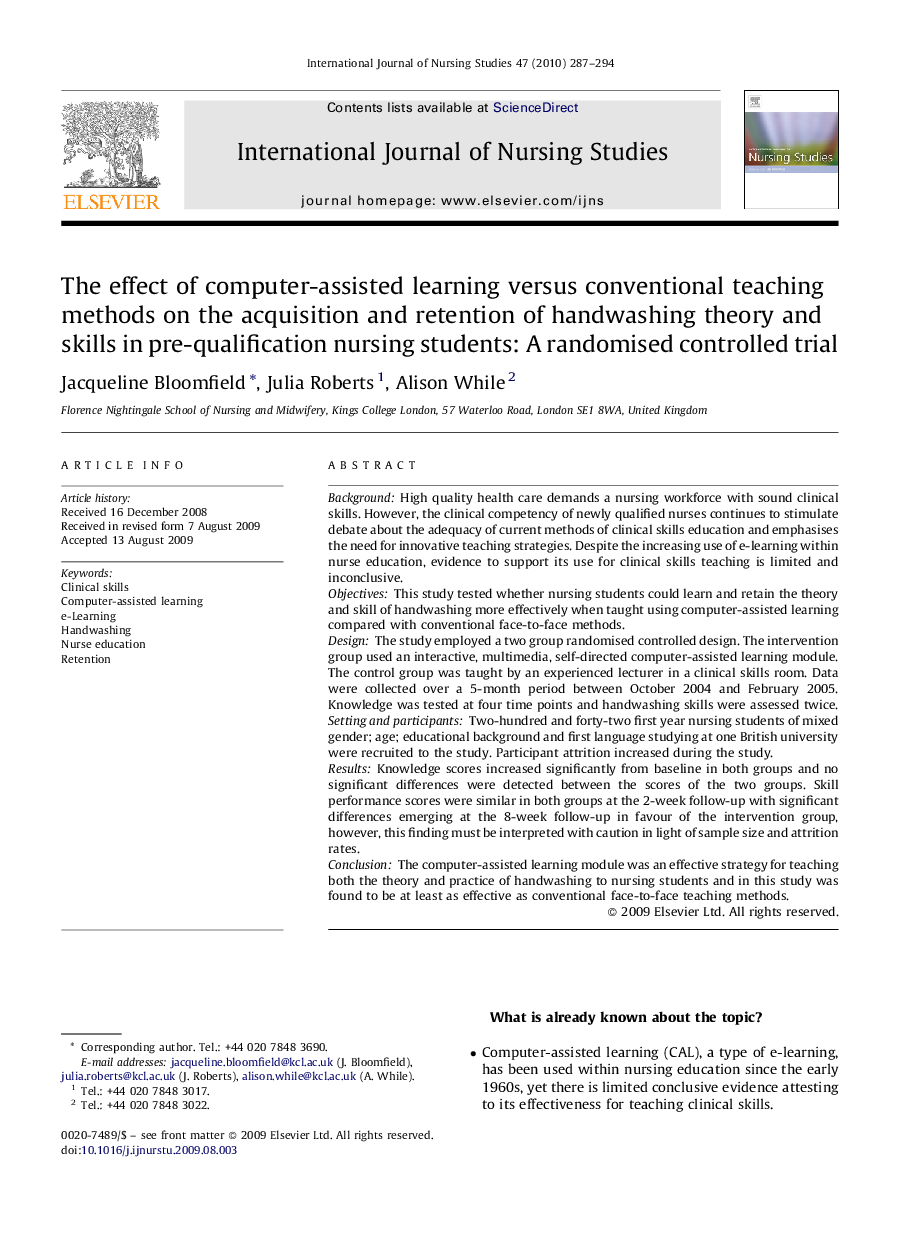| کد مقاله | کد نشریه | سال انتشار | مقاله انگلیسی | نسخه تمام متن |
|---|---|---|---|---|
| 1077667 | 1486586 | 2010 | 8 صفحه PDF | دانلود رایگان |

BackgroundHigh quality health care demands a nursing workforce with sound clinical skills. However, the clinical competency of newly qualified nurses continues to stimulate debate about the adequacy of current methods of clinical skills education and emphasises the need for innovative teaching strategies. Despite the increasing use of e-learning within nurse education, evidence to support its use for clinical skills teaching is limited and inconclusive.ObjectivesThis study tested whether nursing students could learn and retain the theory and skill of handwashing more effectively when taught using computer-assisted learning compared with conventional face-to-face methods.DesignThe study employed a two group randomised controlled design. The intervention group used an interactive, multimedia, self-directed computer-assisted learning module. The control group was taught by an experienced lecturer in a clinical skills room. Data were collected over a 5-month period between October 2004 and February 2005. Knowledge was tested at four time points and handwashing skills were assessed twice.Setting and participantsTwo-hundred and forty-two first year nursing students of mixed gender; age; educational background and first language studying at one British university were recruited to the study. Participant attrition increased during the study.ResultsKnowledge scores increased significantly from baseline in both groups and no significant differences were detected between the scores of the two groups. Skill performance scores were similar in both groups at the 2-week follow-up with significant differences emerging at the 8-week follow-up in favour of the intervention group, however, this finding must be interpreted with caution in light of sample size and attrition rates.ConclusionThe computer-assisted learning module was an effective strategy for teaching both the theory and practice of handwashing to nursing students and in this study was found to be at least as effective as conventional face-to-face teaching methods.
Journal: International Journal of Nursing Studies - Volume 47, Issue 3, March 2010, Pages 287–294